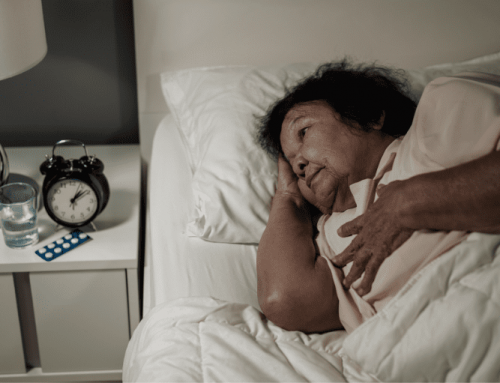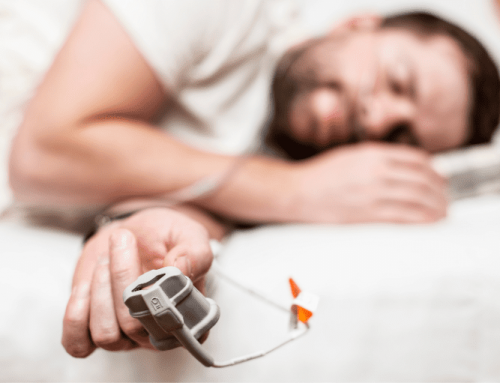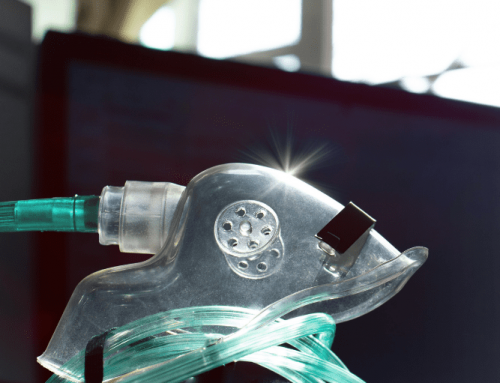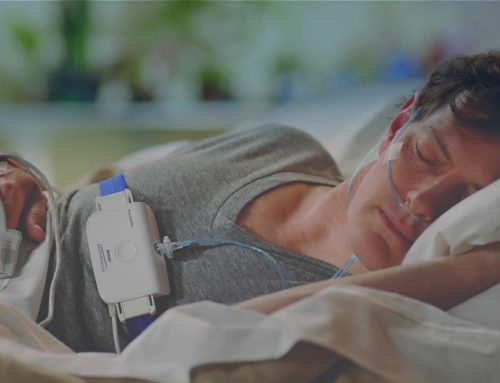The Connection Between Sleep Apnea and Heart Rhythm
Everyone has experienced a poor night’s sleep at one point or another and is no stranger to the crankiness and grogginess resulting from it. As you pour another cup of coffee to get through the day, you hope to sleep better the next night only to repeat the routine the following day. This is a constant struggle for the sufferers of undiagnosed or untreated sleep apnea. Unfortunately, most adults are unaware they have sleep apnea, and if left untreated, it can lead to more significant health concerns, particularly heart disease. Sleep apnea has been linked with certain heart-related conditions such as high blood pressure, heart arrhythmias, atrial fibrillation, coronary artery disease, heart attack, heart failure, and even strokes. However, if sleep apnea is diagnosed and treated effectively, it can reduce the risk of these cardiovascular complications.
Sleep apnea is a common yet serious sleep disorder in which breathing repeatedly becomes limited or stops completely during sleep. Obstructive sleep apnea, or OSA, is the most common type of sleep apnea caused by the relaxation of the soft tissues in the back of the throat that collapse and block the airway impeding airflow to the lungs. When this occurs, the amount of oxygen circulating in the blood is significantly reduced, and the organs do not receive the necessary amount to function properly. The brain senses that there is not enough oxygen and alerts the body to wake up and breathe. The individual is startled awake, usually with a snore, gasp, or choking feeling. These events are called apnea episodes. These episodes last at least 10 seconds and can occur anywhere from 5 to 30 times an hour. Although, the number of episodes can be significantly higher in cases of severe sleep apnea. The severity of obstructive sleep apnea ranges from mild, moderate, and severe depending on the number of episodes per hour throughout the night.
Typically, blood oxygen levels remain around 95 to 100 percent, but when breathing becomes disrupted or stops due to an apnea event, blood oxygen levels can fall below 88 percent, causing hypoxemia. As oxygen levels fall and hypoxemia occurs, the body responds by releasing a stress hormone called epinephrine. Epinephrine, also known as adrenaline, causes the blood vessels to tighten and increase heart rate. In addition to pumping faster, the heart must also pump harder to get blood throughout the body, resulting in increased blood pressure. The longer the apnea episode lasts results in a more significant increase in blood pressure. When this occurs several times throughout the night, epinephrine levels remain high, causing blood pressure and heart rate to stay elevated, leading to high blood pressure. Once high blood pressure develops and heart rate becomes unpredictable, overall heart health begins to decline, and the chances of developing more serious conditions, like coronary heart disease and heart failure, rises.
Luckily, diagnosing and treating sleep apnea in its early stages can prevent the worsening of heart disease. The most effective treatment for sleep apnea is a bedside continuous positive airway pressure, CPAP, machine. This machine continually blows air through a mask worn over the nose and mouth. The constant flow of air prevents the tissues in the back of the throat from collapsing, keeping the airway open, preventing blood oxygen levels from falling during sleep. Continuous use of a CPAP machine lowers the stresses placed on the heart and allows the body to repair the damage that has occurred, which improves heart function and reduces the risk of cardiovascular complications. Although, the use of a CPAP machine does not entirely mitigate the risk of developing heart-related issues. Implementing lifestyle changes such as losing weight, exercising, maintaining a healthy diet, avoiding alcohol and smoking in conjunction with CPAP usage will help improve overall health and well-being,
It is estimated that one in five adults suffer from a mild form of sleep apnea, and 85% of people with sleep apnea have not been diagnosed and could be unaware that they may have it. Therefore, many people may not be aware of the stressors being placed on their heart. If you believe you may be suffering from sleep apnea or are experiencing symptoms like snoring, waking multiple times a night, daytime drowsiness, headaches, fatigue, or difficulty concentrating, you should consult your physician. Or you can start by taking our free online assessment to see if you could be at risk for obstructive sleep apnea. Early diagnosis is not only crucial for heart health but your overall well-being. It is possible to get a good night’s sleep. Get started with Vitalistics today!







